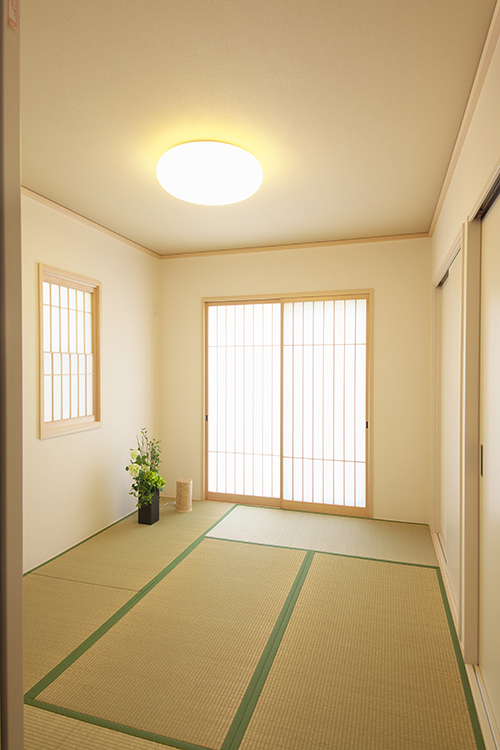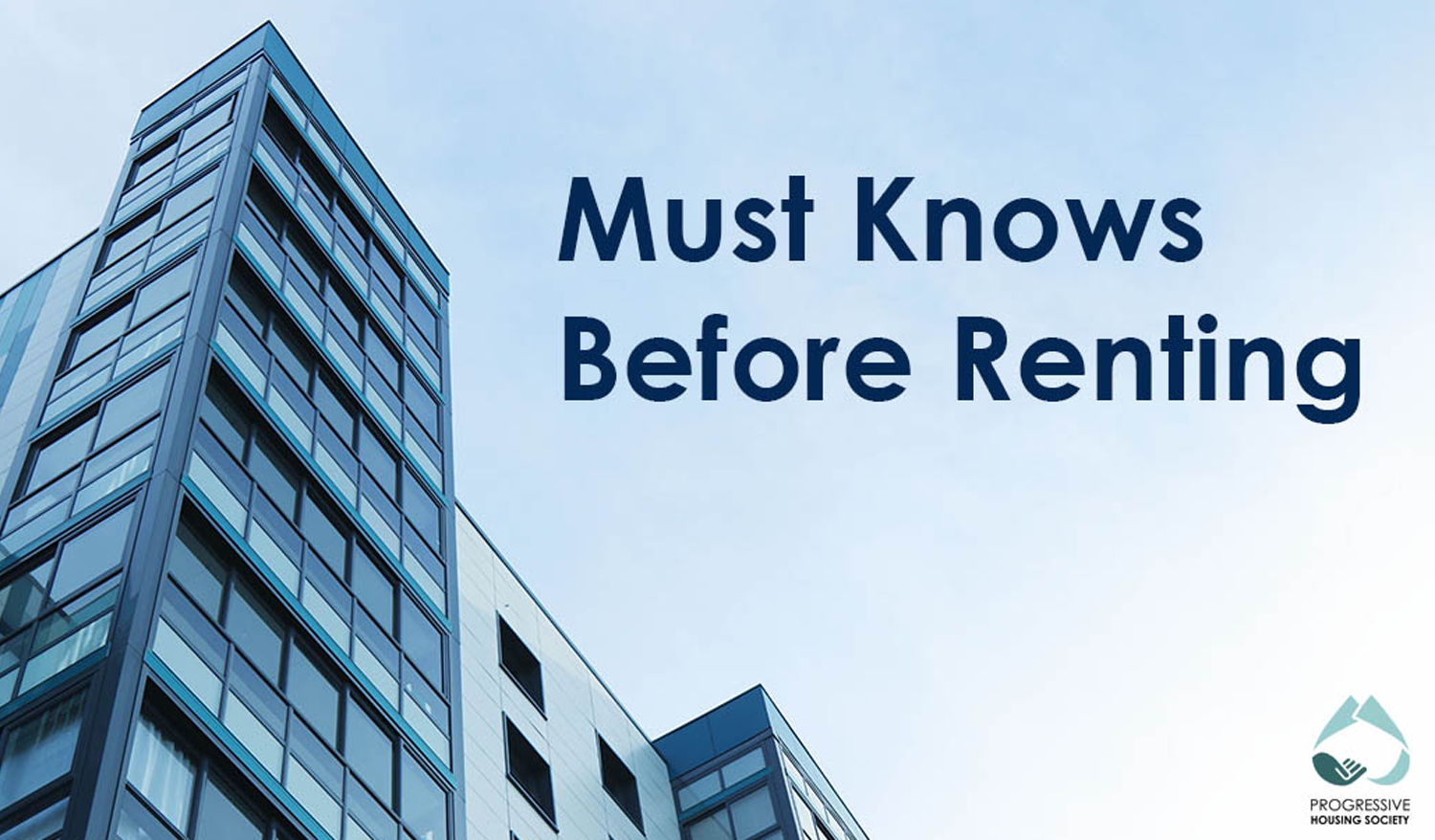What to Know Before Renting
-
by
 PHS
PHS
Returning home after a long day is something many people look forward to everyday. Having your own space to relax and unwind with a drink in hand is often a rewarding experience. This can sometimes be easier said than done. Finding the right place is often difficult. It can be hard to know what you need to know before renting but with the right help and knowledge, it doesn’t have to be!
At Progressive Housing Society, we specialize in finding housing for numerous clients on a daily basis. We have compiled must know information and other tips to help ease you into the process. So, get ready to become an informed tenant!
What is the Residential Tenancy Act?
What is the Residential Tenancy Act? Well, it is a set of rules and regulations that govern how places are being rented in British Columbia. These rules apply to all residential properties or units except for cooperative housing, transitional housing, homestay programs or vacation rental programs. The Act also applies to tenancy agreements with minors (anyone below the age of 19). Landlords and Tenants have to comply with the act, or else face compensation. It is a good idea to familiarize yourself with the Tenancy Act before beginning your search for a new home.
What Terms Do You Need to Know?
There are many definitions within the Residential Tenancy Act. But here are some commonly used ones to familiarize yourself with.
- Tenancy: means a tenant’s right to possession of a rental unit under a tenancy agreement
- Tenancy agreement: Means an agreement, whether written or oral, express or implied, between a landlord and a tenant respecting possession of a rental unit, use of common areas and services and facilities, and includes a license to occupy a rental unit
- Sublease agreement: tenancy agreement where the tenant of the rental unit transfers the tenant’s rights under the tenancy agreement to a subtenant for a period shorter than the term of the tenant’s tenancy agreements
- Security deposit: money paid, or value or a right given, by or on behalf of a tenant to a landlord that is to be held as security for any liability or obligation of the tenant respecting the residential property (does not include post-dated cheques for rent, pet damage deposit or a fee)
- Pet damage deposit: money paid, or value or a right given, by or on behalf of a tenant to a landlord that is to be held as security for damage to residential property caused by a pet
These terms and definitions were taken directly from the Tenancy Act. If you come across other terms you do not understand, you can always refer to the Act for help. It is a detailed document with useful information about what you’re allowed and not allowed to do. If you have a question, chances are, the Act covers it. So, don’t hesitate to check it out if you have any unanswered questions.

Good Questions to Ask
Now that you have been provided with some basic information, it is up to you to determine the specifics of the unit you are looking at. Here are some good questions to ask the landlord while viewing the unit:
- Confirm the current price of the rent
- What is the duration of the lease? (Fixed-term or month-to-month)
- Are Utilities (hydro, internet, etc.) included in the rent?
- Who are the neighbours? What are they like?
- Will you have access to other facilities (gym, party room, etc.)?
- Do you need parking? Is there parking?
- What comes with the unit (refrigerator, washer and dryer, etc.)?
- Are pets allowed?
- How much modification is allowed to the unit?
You can ask more questions that are particular to what you’re looking for in a home. Try to ask questions about things not found on the listing or not obvious when looking at the unit. Do not be afraid to question your landlord as you deserve to know about your potential home. If the landlord is unwilling to answer your questions, it may be a sign of dishonesty or that they may be trying to hide something important. If you notice this or feel uncomfortable, it is better to move on and find a place where you are comfortable with the landlord and the rental unit.
No Discrimination Allowed
In British Columbia, discrimination is not allowed when renting out properties. Landlords are not allowed to refuse a potential tenant based on race, colour, ancestry, place of origin, religion, marital status, family status, physical or mental disability, gender, sexual orientation, age, or lawful source of income (ex. Income assistance).
The exceptions are if the building is reserved for older people, people with disabilities, or if the owner will be sharing a bathroom or kitchen with the tenant. If you feel that you are being discriminated against, you can contact BC Human Rights Clinic for help. The Clinic provides free representation if you have an accepted case before the BC Human Rights Tribunal on a province-wide basis.
Interacting with Landlords Before Tenancy
Interacting with landlords can be challenging for many people. Often times, people are unsure of how to effectively engage with the landlord. And in the current market, finding reasonably priced and good quality rental units can be hard to come by and competitive to get. If you do stumble across a place where you feel would best suit you, time is of the essence. By applying the right strategies, you can easily increase your chances of success.
- Try to meet the landlord face-to-face. It is harder to reject a face than a phone call
- Be honest, but no need to give out unnecessary information. Over-sharing could influence the landlord conscious or unconsciously, and cause him or her to make impactful judgments about you
- Prepare you deposit and other financial details needed. Having the funds ready shows that you’re confident in paying rent and are ready to commit to the tenancy agreement
- Prepare your application and references early. This shows that you are serious about renting and displays your responsibility
Ready to Start Renting?
Looking for a place to rent can be tough! Don’t let that discourage you! Having a place where you feel secure and comfortable is important to physical and mental health. The staff at Progressive Housing Society tries their best to help clients navigate the struggles of looking for housing solutions. We have a number of services available. If you or someone you know face multiple barriers to finding secure housing, we may be able to help you. Get support today!
References
Homelessness Services Association of BC. (2019). Engaging Landlords [PowerPoint slides].
Canada, Government of B.C., B.C. Law. (2000). Residential Tenancy Act.Victoria: British Columbia, Residential Tenancy. Retrieved June 13, 2019, from http://www.bclaws.ca/EPLibraries/bclaws_new/document/ID/freeside/00_02078_01#section41
11 Common Issues Tenants Face and How to Fix Them. (2018, February 09). Retrieved June 13, 2019, from https://www.daypropertymanagement.com/2018/02/09/11-common-issues-tenants-face-fix/




